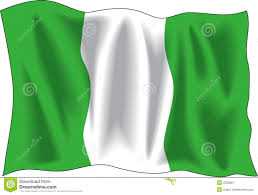 Nigeria’s claim of being the giant of Africa is in conflict with its ranking of 41 out of 52 on the Good Governance Index announced at the 2013 Good Governance Summit held in collaboration with the Mo Ibrahim Foundation in Dakar, Senegal. This is certainly a setback and should serve as a wake-up call for the country.The recurring questions and issues Nigerians are faced with include: How are our leaders responding to the challenges of implementing good governance effectively and efficiently? Is their understanding of the dynamics needed to change our situation different from that of the general public? More importantly, where do their priorities lie?Almost every news item in recent times has focused on the political dynamics within the PDP, nPDP, APC and others. This is definitely an interesting issue to follow, but one can’t help but question if the real issues such as poverty, security, human rights, climate change, infant and maternal mortality, public health, etc, have not
Nigeria’s claim of being the giant of Africa is in conflict with its ranking of 41 out of 52 on the Good Governance Index announced at the 2013 Good Governance Summit held in collaboration with the Mo Ibrahim Foundation in Dakar, Senegal. This is certainly a setback and should serve as a wake-up call for the country.The recurring questions and issues Nigerians are faced with include: How are our leaders responding to the challenges of implementing good governance effectively and efficiently? Is their understanding of the dynamics needed to change our situation different from that of the general public? More importantly, where do their priorities lie?Almost every news item in recent times has focused on the political dynamics within the PDP, nPDP, APC and others. This is definitely an interesting issue to follow, but one can’t help but question if the real issues such as poverty, security, human rights, climate change, infant and maternal mortality, public health, etc, have not
been given a back seat until after the 2015 elections.As Nigerians follow the dynamics of the political parties and the speed at which those involved respond to it, the important issues giving the average Nigerian a great sense of alarm have not been adequately addressed. International development partners confidently cite our deplorable status where combating extreme poverty is concerned. And despite our government’s vehement rejection of the validity of their figures, they have not done anything to convince the people about their actual efforts and achievements, if any.The country continues to face enormous environmental, social and economic challenges. At the same time, opportunities for growth and change are often not identified early enough, not analysed deeply enough or not systematically integrated into actions efficiently. Although one might argue that the politics of the country and its economic, social and environmental situations are inter-connected, the strategies for instituting the solutions are also linked and can be addressed at different levels, with the most effective solutions taking priority.There needs to be a balance between the activities of our leaders in their political parties and the reality of their responsibilities to the lives of the people they serve and represent. As interesting as all the political drama is, implementing economic growth and actually changing the lives of the poor for the better have to take priority once again. There is the need to refocus on development projects and practices that will increase the efficiency and competitive advantage of their states. If solutions are properly implemented, they will be a major catalyst in the achievement of their objectives and the fulfilment of their obligations as leaders and politicians.



























